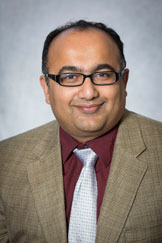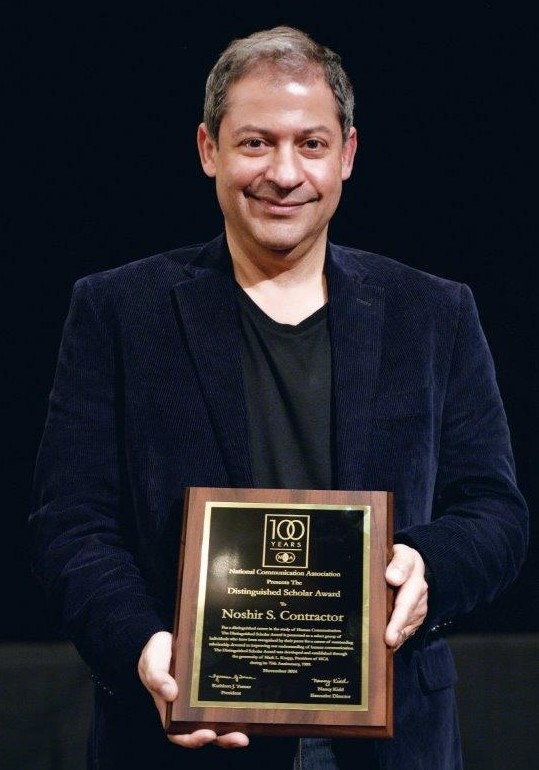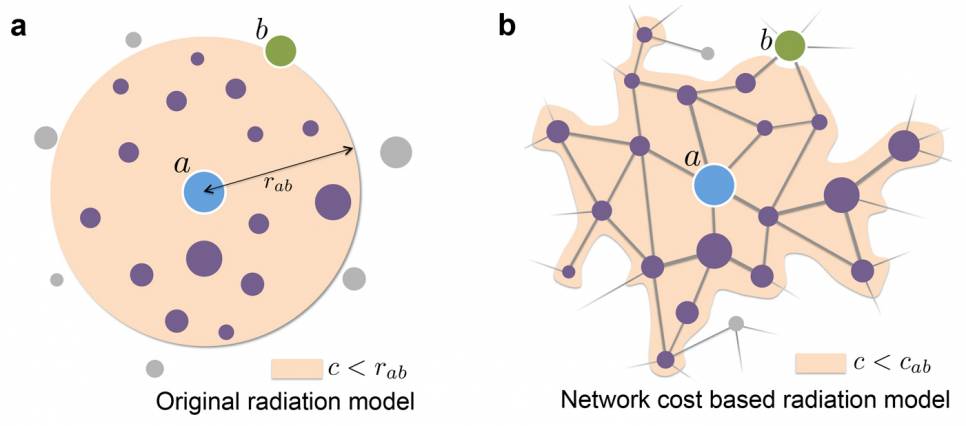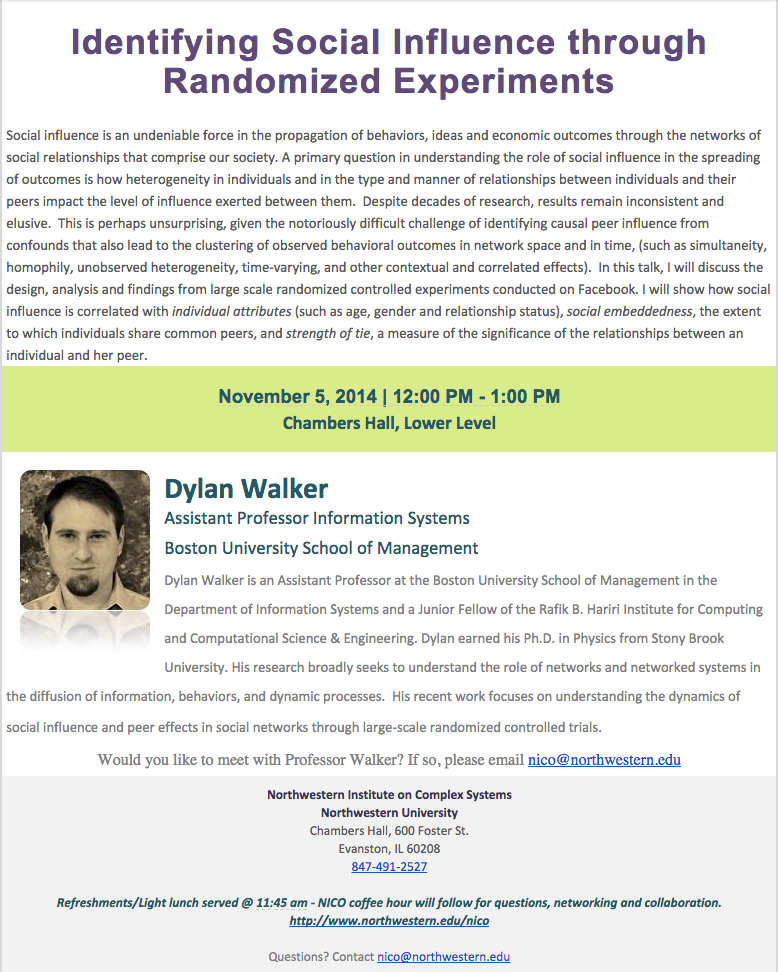Due to the adverse weather, this talk has unfortunately been cancelled.

SONIC Lab is proud to welcome Prasad Balkundi who will present a talk on Tuesday, November 18, 2014 at 2:00 P.M. in SONIC Lab in the Frances Searle Building room 1.459.
All are welcome to attend. To schedule a one-on-one meeting with a Dr. Balkundi please schedule a time here. Please contact Nancy McLaughlin with any questions/comments.
Culture, Labor Markets and Attitudes: A Meta-analytic Test of Tie-Strength Theory
Although the strength-of-weak-tie theory is foundational in social network research, studies have reported inconsistent results sometimes supporting the weak tie theory and other times contradicting it. To address these inconsistencies, we explicate three boundaries of weak-tie theory: Culture, labor markets and outcomes. First, the theory was developed and tested extensively in western nations, raising the issue of whether cultural context affects outcomes. Second, the theory was tested using lower-level applicants finding jobs across organizations, raising the issue as to the applicability of the theory for job movement within organizations for high-ranking employees. Third, beyond the question of finding a job, the question arises as to strength-of-tie effects on a broader set of outcomes such as access to information and job attitudes. Based on a meta-analysis of 101 studies (n = 23,303) we found that strong ties were more potent than weak ties in conformist cultures. Second, strong ties within the organization were more beneficial than weak ties. Also, managers benefitted more from strong ties. Third, strong ties facilitated immediate effectiveness and positive job attitudes whereas weak ties enhanced distal effectiveness for low-end employees.
About Prasad Balkundi
Dr. Prasad Balkundi is an Associate Professor in the Organization and Human Resources Department in the School of Management at the University of Buffalo. He received his Ph.D. in business administration from Pennsylvania State University. His research interests include social networks and leadership in teams and his work has appeared in the Academy of Management Journal, Academy of Management Review, Journal of Applied Psychology and Leadership Quarterly.
 What makes one a good group member? Is it intelligence? A recent study found that, “having a lot of intelligent people in the group did not necessarily mean that your group will have sure success.”
What makes one a good group member? Is it intelligence? A recent study found that, “having a lot of intelligent people in the group did not necessarily mean that your group will have sure success.” 




